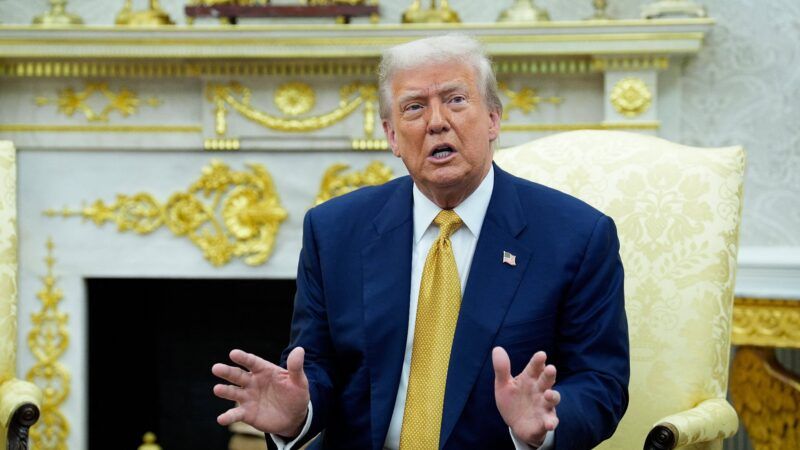Trump's 'Deal' With Japan Is Another Loser for Americans
Not only does it raise taxes on American consumers, but it leaves American automakers at a distinct disadvantage relative to their Japanese competitors.

The Trump administration is touting a "massive" trade deal with Japan that was struck just days before the (still uncertain) August 1 deadline when higher tariffs are set to hit.
But, as with earlier "deals" struck with the United Kingdom and Vietnam, this agreement looks like a bad one for the United States. Not only does it raise taxes on American consumers, but it leaves American automakers at a distinct disadvantage relative to their Japanese competitors.
Under the terms outlined by Trump in a Truth Social post on Tuesday, imports from Japan will be subject to a 15 percent tariff when they enter the United States. Yes, that's lower than the 25 percent tariff that the president has been threatening to impose on Japanese imports, but it is still a huge tax increase relative to existing tariffs on Japanese goods.
Previously, the average tariff rate on American imports of Japanese goods was less than 2 percent, according to the World Bank's data. In other words, Trump's "deal" amounts to roughly a 650 percent tax increase on those imports. Those taxes, like all tariffs, will be paid by Americans.
The higher tariffs on imports from Japan will hit a wide variety of products, because Japan is one of America's biggest trading partners. Americans imported over $148 billion of goods from Japan last year, including billions of dollars worth of cars, machinery, industrial equipment, electronics, and pharmaceuticals. Trump's new deal will make all of those items more expensive.
Because cars are America's biggest import from Japan, that part of the deal is worth a bit more scrutiny. Indeed, when this deal is combined with some of Trump's other trade policy maneuvers, it looks like the White House might have delivered a huge victory for Japanese automakers—despite the Trump administration's professed interest in using tariffs to promote American manufacturing jobs.
Keep in mind that the Trump administration has already slapped 50 percent tariffs on steel and aluminum, both of which are essential to manufacturing cars. On top of that, American automakers are facing a 25 percent tariff on imported car parts. Those tariff hikes on raw materials and intermediate goods are driving up costs for American automakers like General Motors, which earlier this week blamed tariffs for a $1.1 billion drop in profits during the second quarter.
Now, the Trump administration is touting a deal that will apply a 15 percent tariff on cars imported from Japan (technically, it's a new 12.5 percent car-specific tariff on top of a 2.5 percent existing tariff on Japanese cars). In other words, it will be cheaper to import finished cars from Japan than it will be to import the steel, aluminum, and other parts necessary to build cars in the United States.
The American auto industry has already noticed. "Any deal that charges a lower tariff for Japanese imports with virtually no U.S. content than the tarrif imposed on North American built vehicles with high U.S. content is a bad deal for U.S. industry and U.S. auto workers," Matt Blunt, president of the American Automotive Policy Council, told Car and Driver.
In all, Trump's deal with Japan means that American consumers of Japanese products are facing a huge tax hike, while American manufacturers are now at a distinct disadvantage when compared to companies making finished products in Japan.
It's also worth noting that the deal itself remains quite vague, at best. For example, Trump claimed that Japan has promised to invest $550 billion in America over the next few years, but the Japanese government can't simply order private businesses to do that. Additionally, Trump's announcement seems to lack many of the details typically included in trade deals. The White House has not yet released the text of the deal, and Japanese Prime Minister Shigeru Ishiba told reporters that he was still reviewing the agreement, according to The New York Times.
Despite all that, Trump is declaring victory. "It's a great deal for everybody," the president said on Tuesday night. In reality, this latest development in Trump's trade war once again demonstrates how his tariffs are distorting markets, harming Americans, and undermining his administration's economic goals.


Show Comments (97)